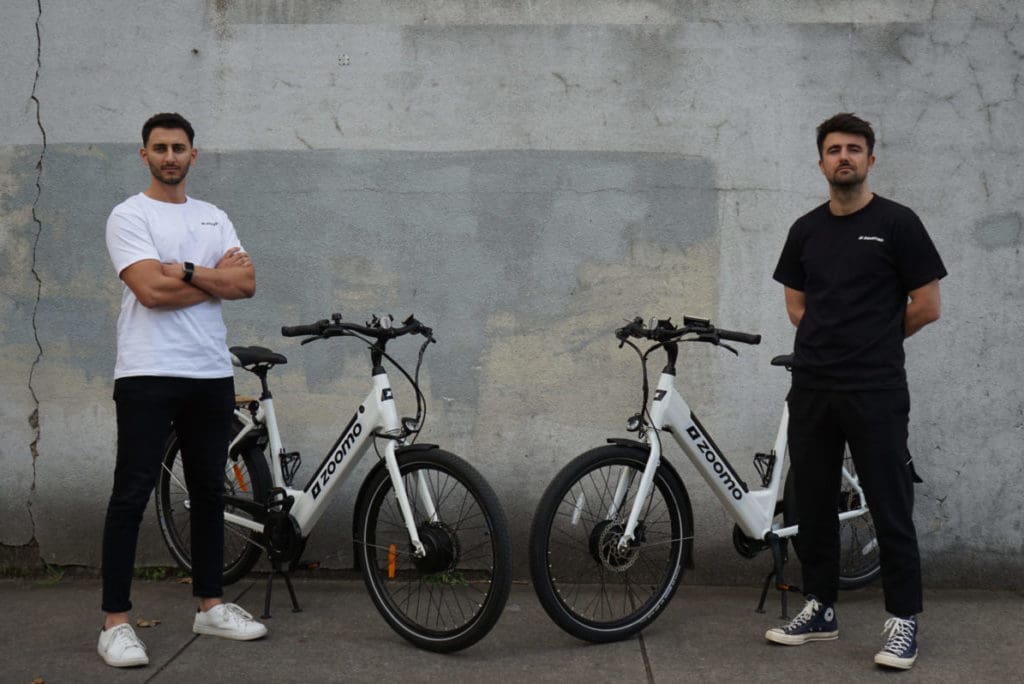Zoomo Raises Over $34 Million in Two Years

As we recently wrote about here in our sister website Micromobility Report, Zoomo is a Sydney based ebike company previously known as Bolt Bikes, that has been growing exponentially, fuelled by a flood of venture capital.
Most recently, the Australian Financial Review reported that Zoomo has closed a major $15.4 million capital raise that was four times oversubscribed, bringing on AirTree Ventures as a lead investor.
Zoomo, which makes and sells e-bikes designed for delivery drivers to both individual gig economy workers and large fleet operators, had set out to raise just $US3 million (A$3.9 million), but received so much interest it increased the size of the round to $US12 million, (A$15.4 million) including some venture debt.
Zoomo co-founder and CEO Mina Nada said there would be more than 10,000 Zoomo bikes on the road this year throughout Australia, Europe and the US.
The company was founded in 2017 by former Bain & Company colleagues Mr Nada (who has also been a local executive for Deliveroo) and Michael Johnson. While at Deliveroo, Mr Nada was constantly under pressure to meet key performance indicators centred on speed and delivery and he noticed the fastest deliveries occurred on e-bikes.
As a side hustle, Mr Nada and Mr Johnson started buying up e-bikes and leasing them to food delivery workers, helping him hit his performance targets.
After a stint with a Chinese bike-sharing company, Mr Nada decided to pursue Zoomo (formerly known as Bolt) full-time after seeing a wave of investment into the industry in 2019 on the consumer side, but still no players focused on the “electrification of last mile delivery”.
The latest capital raise is the third completed by the company and follows a $16 million round last year, led by the Clean Energy Finance Corporation. Mr Nada said the additional financing was necessary to meet the demand the business was receiving from its corporate customers.
The company’s bikes are used by the likes of UberEats, Deliveroo and DoorDash, as well as Domino’s Pizza, Pizza Hut and JustEat. In the emerging last-minute grocery delivery space, it has signed up Getir, Gorillas and Dija.
“We didn’t have enough money to keep up with the demand,” Mr Nada said.he cash injection will also allow Zoomo to place more advanced orders with part suppliers, amid a global shortage for everything from silicon chips to bike pedals.
Mr Nada said the slowdown in the global supply chain had been a huge challenge for the business in 2020 and substantially constrained the growth of the company.
“We could have been double the size last year if it wasn’t for the supply chain blockages,” he said.
“Silicon, battery cells, and even bike components are in short supply. Our silicon supplier said if we want it in 2022, we need to place orders now or they’ll give it away to someone else.
“You don’t want to be committing to orders you don’t have money for. [So the extra capital] has been a huge asset in allowing us to place orders to meet forecast demand.”
The bikes vary in cost based on the model, ranging from $29 to $79 a week.
In total the company has raised $34 million in the last 24 months. Other investors in the business include Maniv Mobility, Contrarian Ventures and US investors Winthrop Square and Wisdom VC.
“Supported by regulatory and cultural tailwinds, Zoomo is accelerating the electrification of global transport, starting with last mile delivery,” AirTree principal Jackie Vullinghs said.
“Their full stack offering from e-bikes and e-mopeds to finance, servicing and fleet management makes it easy for global food, grocery and logistics businesses to choose carbon neutral”.
This article was first published in the Australian Financial Review
